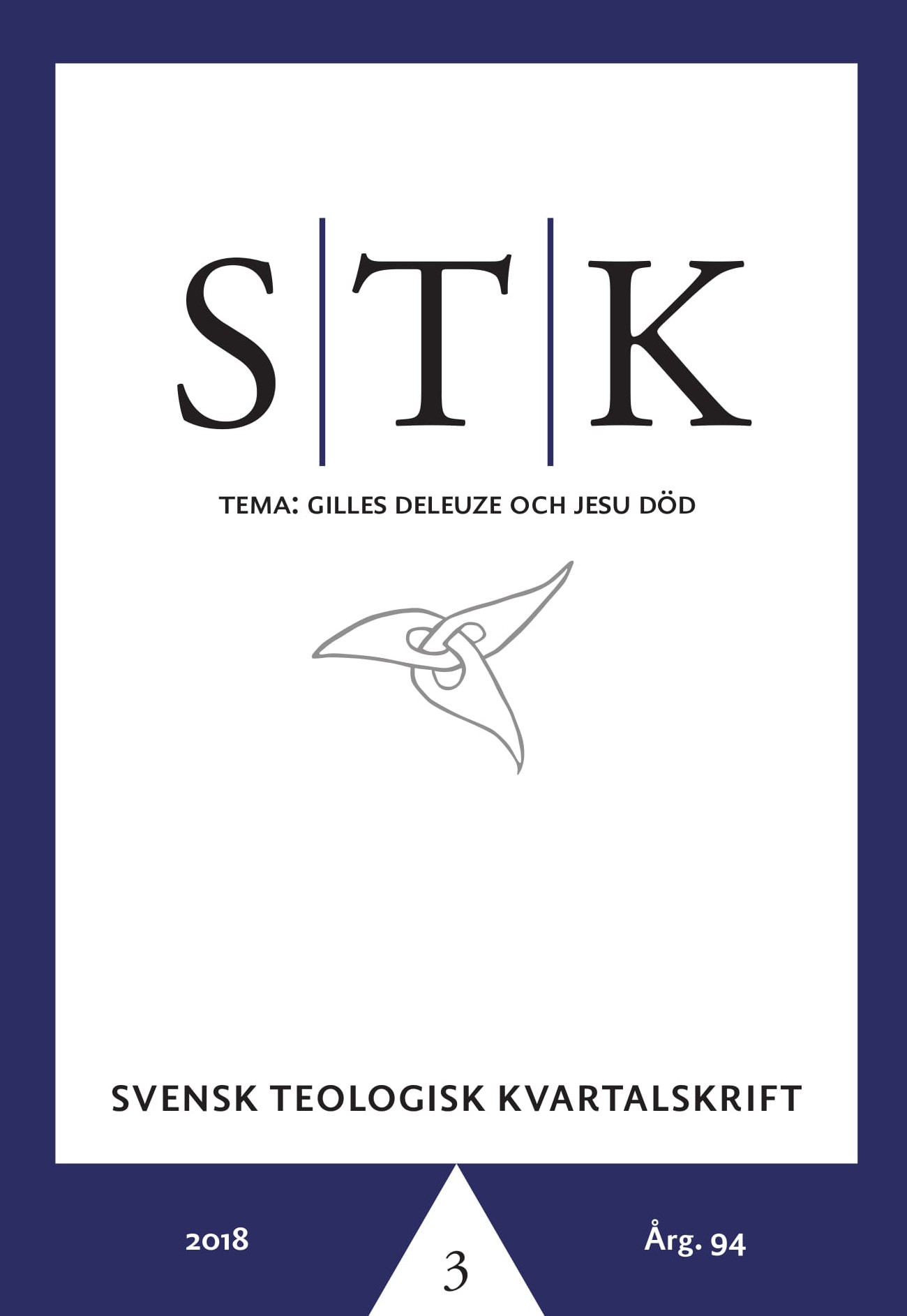The Singular Event of Jesus' Death in Early Christianity
Abstract
This article looks to the philosophy of Gilles Deleuze in order to theorize the crucifixion of Jesus as event in early Christian literature. A Deleuzian view on the event is primarily articulated with the distinction between a sequential and a serial understanding of happenings, where the latter forms the basis for singular events. It is argued that Jesus' death is best considered a singular event in early Christianity, meaning that it displays a particular, distinct force in early Christian theologies that is irreducible to other happenings, such as the resurrection. The article's first section investigates the difference between a sequential and serial view on Jesus' death, by comparing a Pauline view of Jesus' death and resurrection, on the one hand, with the function of Jesus' death in a selection of Christian texts from the first to the fourth century, on the other. In the last section, the singularity of Jesus' death in early Christian texts is explored further, by turning to the Gospel of Mark. Returning to the Deleuzian theory of events, Jesus' peculiar death in the Gospel is described with the eventive traits of paradox and obscurity. It is argued that the Markan portrayal of the death of Christ – as a singular event – invites embodiment of Jesus' enigmatic death, in the lives of the Gospel's audience.
Downloads
Publicerad
Nummer
Sektion
Licens
Copyright (c) 2019 Joel Kuhlin

Detta verk är licensierat under en Creative Commons Erkännande-Ickekommersiell-IngaBearbetningar 4.0 Internationell-licens.


